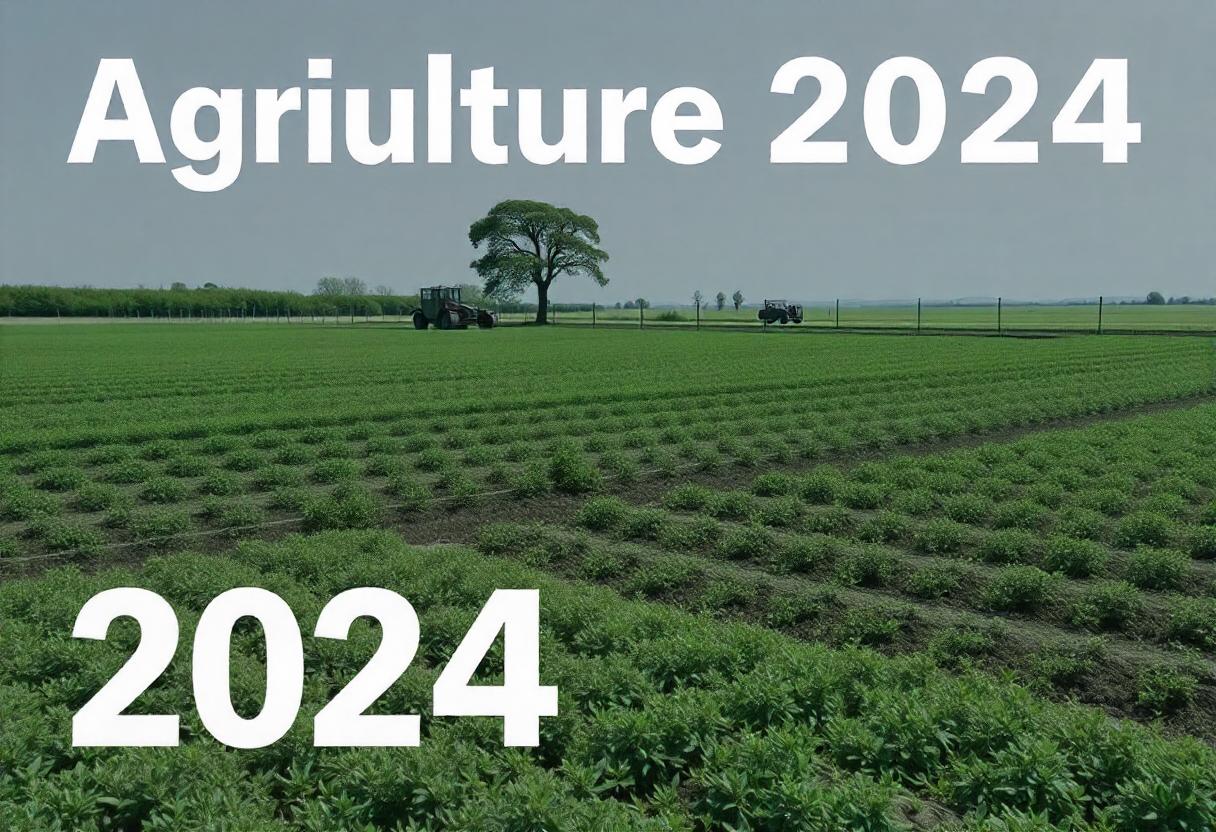
The agriculture sector in 2024 is expected to offer a wide range of job opportunities across various fields due to advancements in technology, sustainability initiatives, and growing global food demands. Here’s an overview of potential job vacancies and trends in the agriculture industry for 2024:
Key Trends Influencing Agriculture Vacancies
Technological Advancements
- Precision Agriculture: Increased use of drones, sensors, and data analytics in farming operations creates demand for tech-savvy professionals who can manage and analyze agricultural data.
- Automation: Robotics and automated machinery are being integrated into agricultural practices, leading to job openings for engineers, technicians, and IT specialists.
Sustainability and Environmental Impact
- Sustainable Practices: Growing emphasis on sustainable farming practices and environmental stewardship requires roles in soil health management, organic farming, and environmental compliance.
- Climate Resilience: Professionals specializing in climate-smart agriculture, including climate adaptation and mitigation strategies, are in demand.
Global Food Security
- Supply Chain Management: As global food supply chains become more complex, there is a need for experts in logistics, supply chain management, and quality control.
- Research and Development: Positions in agricultural research, including plant breeding and biotechnology, are critical to addressing food security challenges.
Potential Job Vacancies in Agriculture for 2024
Agricultural Scientists and Researchers
- Plant Scientists: Focus on developing new crop varieties, improving yields, and researching pest and disease resistance.
- Soil Scientists: Study soil properties and management practices to enhance soil health and productivity.
Farm Management
- Farm Managers: Oversee daily operations, including crop and livestock management, budgeting, and labor supervision.
- Agri-business Consultants: Provide expert advice on farm management, business strategies, and operational efficiency.
Technology and Innovation
- AgTech Specialists: Work with advanced technologies such as precision farming tools, automation systems, and agricultural software.
- Data Analysts: Analyze data from sensors, drones, and other sources to optimize farm operations and decision-making.
Sustainability and Environmental Roles
- Sustainability Coordinators: Implement and manage sustainable farming practices, ensuring compliance with environmental regulations.
- Conservationists: Work on projects related to land conservation, biodiversity, and natural resource management.
Supply Chain and Logistics
- Supply Chain Managers: Coordinate the logistics of agricultural products from farm to market, ensuring efficient and timely delivery.
- Quality Control Inspectors: Ensure that agricultural products meet safety and quality standards throughout the supply chain.
Agribusiness and Marketing
- Agricultural Marketers: Develop marketing strategies for agricultural products, including branding, promotion, and market analysis.
- Sales Representatives: Promote and sell agricultural products and services, including seeds, equipment, and technology solutions.
Education and Extension Services
- Extension Agents: Provide training and support to farmers and agricultural businesses on best practices, technology adoption, and market trends.
- Agricultural Educators: Teach and develop curricula related to agriculture, including at universities, colleges, and vocational institutions.
Skills and Qualifications in Demand
- Technical Skills: Proficiency in agricultural technologies, data analysis, and machinery operation.
- Sustainability Expertise: Knowledge of sustainable practices, environmental regulations, and climate adaptation strategies.
- Management and Leadership: Skills in farm management, project coordination, and team leadership.
- Communication and Marketing: Abilities in marketing, sales, and effective communication with stakeholders.
Job Search Strategies
- Industry Associations: Engage with organizations such as the American Farm Bureau Federation, Canadian Federation of Agriculture, or similar bodies that provide job listings and industry insights.
- Job Portals: Use specialized job boards and websites focusing on agricultural careers, such as AgCareers.com or Agriculture and Agri-Food Canada’s job portal.
- Networking: Connect with professionals in the agriculture sector through conferences, webinars, and social media platforms like LinkedIn.
- Educational Institutions: Explore job placement services and career resources offered by universities and colleges with agricultural programs.
Conclusion
In 2024, the agriculture sector presents diverse career opportunities driven by technological advancements, sustainability efforts, and global food security challenges. From scientific research to technology implementation and supply chain management, there are numerous pathways for individuals interested in pursuing a career in agriculture. Embracing these trends and aligning skills with industry needs will enhance job prospects and contribute to the sector’s growth and innovation.